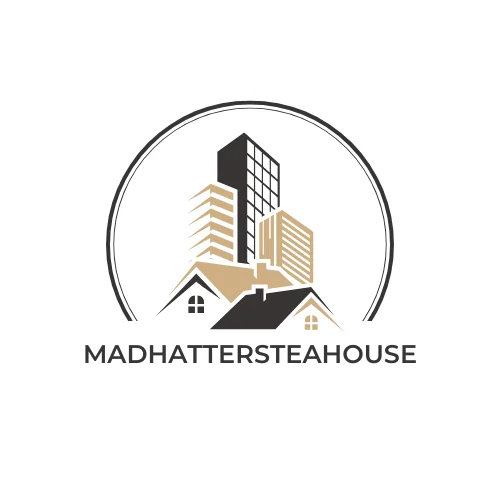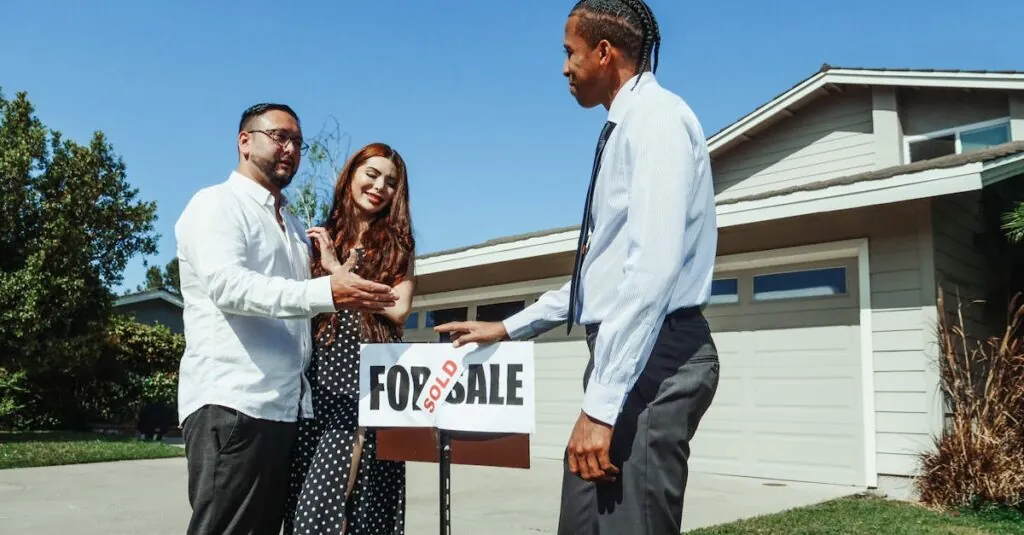In the fast-paced world of real estate, closing a deal can feel like trying to catch a greased pig at a county fair. Realtors know the stakes are high, and mastering effective closing techniques can make all the difference between a “Sold!” sign and a “For Sale” sign lingering a little too long.
With the right strategies up their sleeves, agents can navigate buyer hesitations and seller doubts like seasoned pros. Whether it’s using humor to break the ice or employing savvy negotiation tactics, these techniques not only seal the deal but also build lasting relationships. After all, who wouldn’t want to work with a realtor who can make the closing process feel less like a root canal and more like a celebratory toast? Let’s dive into the art of closing and discover how to turn potential into profit.
Table of Contents
ToggleUnderstanding Realtor Closing Techniques
Mastering closing techniques is essential for realtors aiming to convert prospects into clients. Skilled agents can navigate the intricacies of real estate transactions, enhancing their success in closing deals.
Importance of Effective Closing Techniques
Successful realtors understand that effective closing techniques impact their overall performance. Closing techniques create urgency, encouraging buyers to commit. Using personalized approaches helps agents build rapport and trust with clients. Additionally, employing storytelling can illustrate the benefits of properties, making them more appealing. Furthermore, demonstrating empathy addresses client concerns, facilitating smoother negotiations. Agents who refine their closing tactics consistently see higher conversion rates and client satisfaction.
Common Challenges in Closing Sales
Numerous challenges arise during the closing phase of a sale. Fear of making a financial mistake often leads to buyer hesitation. Sellers may struggle with pricing, unsure of where to set their expectations. Additionally, lack of communication can impede closing, causing misunderstandings. Different personalities can complicate negotiations, requiring adaptability from agents. Lastly, unexpected repair issues can surface, creating last-minute obstacles in transactions. Overcoming these challenges requires persistence, skill, and a proactive approach from realtors.
Key Realtor Closing Techniques
Realtors employ several effective techniques to close deals successfully. Key strategies include building rapport, active listening, and tailoring solutions to meet client needs.
Building Rapport with Clients
Building rapport enhances trust and communication. Agents establish relationships by connecting on shared interests or experiences. Personalizing interactions creates a comfortable environment. Utilizing small talk makes clients feel at ease. Understanding clients’ emotions and concerns fosters a genuine connection. Ultimately, a solid rapport often leads to increased loyalty and higher conversion rates.
Active Listening Skills
Active listening plays a vital role in effective communication. Agents demonstrate this skill by focusing entirely on what clients say. Paraphrasing and summarizing reinforces understanding. Asking clarifying questions shows genuine interest in clients’ thoughts. Nonverbal cues, like nodding and maintaining eye contact, enhance engagement. Trust develops as clients feel heard and valued, reducing anxieties during negotiations.
Tailoring Solutions to Client Needs
Tailoring solutions to individual client needs boosts closing success. Realtors analyze specific requirements to provide personalized options. Offering customized listings or showcasing unique property features resonates with clients. Addressing financial concerns with flexible solutions demonstrates understanding. Creating scenarios that highlight benefits according to clients’ situations increases appeal. A personalized approach means clients feel acknowledged and more likely to commit.
Advanced Closing Techniques
Mastering advanced closing techniques increases a realtor’s success rate in securing deals. These strategies enhance interactions and build confidence in both buyers and sellers.
Trial Close Methods
Trial closing techniques evaluate a buyer’s readiness to commit without pressure. They prompt feedback, allowing agents to gauge interest at various points during discussions. Questions like “How does that sound to you?” or “What are your thoughts on these options?” invite clients to express their thoughts. Successful trial closes create opportunities for addressing concerns immediately, refining the pitch accordingly. By incorporating these methods strategically, realtors reveal underlying buyer hesitations and generate informed conversations.
The Assumptive Close Approach
The assumptive close technique operates on the belief that a sale is already in the bag. This method uses statements that imply agreement and readiness, such as, “When would you like to move in?” or “Let’s set up the inspection.” Agents using this approach direct the conversation toward next steps confidently. Clients often respond positively when they sense the agent’s belief in a successful outcome. Applying this technique effectively reduces hesitation and encourages action, making it vital in closing deals in the competitive real estate market.
Measuring the Effectiveness of Closing Techniques
Evaluating the success of closing techniques plays a vital role in a realtor’s performance. Recognizing effective strategies can significantly impact client satisfaction and sales outcomes.
Analyzing Client Feedback
Gathering client feedback provides valuable insights into closing processes. Real estate agents can utilize surveys and follow-up calls to understand clients’ experiences. Questions should focus on aspects such as communication clarity, responsiveness, and perceived value. By analyzing this data, agents can identify strengths and weaknesses in their closing techniques. Implementing changes based on feedback often leads to improved service and higher satisfaction levels. Use this information to refine approaches and tailor techniques to meet client needs more effectively.
Monitoring Sales Conversion Rates
Sales conversion rates reflect how well a realtor converts leads into closed deals. Tracking this metric over time allows agents to gauge the effectiveness of their closing techniques. A decline in conversion rates signals the need for adjustments in strategy. Regularly reviewing these statistics helps identify patterns and areas for improvement. Moreover, comparing conversion rates across different marketing channels can reveal which strategies yield the best results. Prioritize practices that enhance lead engagement and encourage more positive client interactions to drive successful transactions.
Mastering closing techniques is essential for realtors aiming to thrive in a competitive market. By focusing on building rapport and actively listening to clients, agents can foster trust and create meaningful connections. Tailoring solutions to meet individual needs further enhances the likelihood of successful transactions.
Advanced strategies like trial closing and the assumptive close can significantly boost a realtor’s effectiveness. These methods not only address client concerns but also encourage decisive action.
Regularly measuring the effectiveness of these techniques through client feedback and sales conversion rates allows realtors to refine their approach continuously. Embracing these practices can lead to increased client satisfaction and long-lasting relationships in the real estate industry.





